Aromatherapy, a practice that dates back centuries, harnesses the therapeutic properties of essential oils extracted from plants. These oils capture the natural scents and essences of flowers, fruits, leaves, and herbs, offering a delightful sensory experience.
When used in skincare, essential oils can provide a range of benefits, including nourishing the skin, promoting relaxation, and uplifting the mood. So, get ready to immerse yourself in the soothing aromas of essential oils and unlock the secrets of radiant skin!
Contents
How Does It Work?
Aromatherapy works its magic by utilizing the powerful aromatic compounds found in essential oils. When applied to the skin, these compounds penetrate deeply, interacting with your body’s receptors and triggering biochemical reactions.
This interaction enhances blood circulation, stimulates cellular regeneration, and supports the skin’s natural healing processes. The result? A rejuvenated and glowing complexion that reflects your inner radiance.
Unveiling the Benefits: Tailoring Aromatherapy to Your Skin
Essential oils possess remarkable properties that can revitalize and rejuvenate your skin. Lavender oil, for instance, is known for its soothing effects, making it perfect for sensitive or irritated skin. Tea tree oil, on the other hand, boasts antibacterial properties, making it an excellent choice for acne-prone skin.
Incorporating essential oils into your skincare routine can help address specific skin concerns and promote a healthy complexion.
- Enhanced Hydration: Essential oils like rosehip and jojoba oil can deeply moisturize the skin, helping to combat dryness and improve overall hydration levels.
- Anti-Aging Effects: Certain essential oils, such as frankincense and geranium, possess antioxidant properties that can help reduce the appearance of fine lines and wrinkles, promoting a youthful glow.
- Soothing Irritation: Chamomile and calendula oils are renowned for their calming properties, making them ideal for soothing redness, inflammation, and irritation on the skin.
- Balancing Sebum Production: Essential oils like ylang-ylang and patchouli can help regulate sebum production, making them beneficial for both oily and dry skin types.
- Brightening Complexion: Citrus oils, such as orange and grapefruit, contain natural acids that can promote a brighter, more radiant complexion by gently exfoliating the skin.
Integrating aromatherapy into your skincare routine is a breeze. Simply add a few drops of your chosen essential oil to your favorite carrier oil, such as jojoba or almond oil, and use it as a nourishing moisturizer or for a luxurious facial massage.
You can also create your own customized face mist by combining essential oils with distilled water, giving yourself a refreshing burst of aromatherapy throughout the day.
These are some of the ways how to Incorporate Aromatherapy into Your Skincare Routine:
- Facial Steaming: Add a few drops of your favorite essential oil to a bowl of hot water, place a towel over your head, and allow the aromatic steam to envelop your face. This process helps to open pores and cleanse the skin deeply.
- DIY Face Masks: Enhance the benefits of your face mask by adding a drop or two of essential oil. For example, tea tree oil can amplify the effectiveness of a clay mask for acne-prone skin.
- Aromatherapy Massage: Blend your preferred essential oils with a carrier oil and indulge in a calming self-massage, promoting relaxation and nourishment for your skin.
Is Fragrance Bad for Your Skin?
The answer to whether fragrance is bad for your skin is not straightforward. Some individuals may be more sensitive to fragrances and may experience skin irritation or allergic reactions when exposed to certain scents. This can manifest as redness, itching, or even rashes.
In such cases, it’s advisable to opt for fragrance-free or hypoallergenic products to minimize the risk of adverse reactions.
When incorporating essential oils into a skincare routine, it is advisable to do thorough research or consult a qualified aromatherapist or dermatologist. They can provide guidance on which essential oils may be suitable for your specific skin concerns and how to incorporate them safely into your regimen.
However, it’s essential to note that not everyone will have a negative reaction to fragrance. Many individuals can enjoy scented products without any issues.
In fact, aromatherapy, which utilizes the power of fragrances from essential oils, has been praised for its potential therapeutic benefits, including stress reduction, relaxation, and mood enhancement.
Pro Tips
- Patch Testing: If you have concerns about fragrance and its potential effects on your skin, it’s always wise to patch test new products before applying them to larger areas. Apply a small amount of the product to a discreet area of your skin and observe for any adverse reactions for at least 24 hours. This can help you identify if you have any sensitivities or allergies to specific fragrances.
- Quality Matters: When using essential oils for aromatherapy, prioritize high-quality oils from reputable brands. Look for oils that are pure, organic, and sourced sustainably. This ensures you’re getting the most potent and beneficial oils for your aromatherapy practices.
- Proper Dilution: Essential oils are highly concentrated, so it’s crucial to dilute them before use. Mix a few drops of essential oil with a carrier oil like sweet almond oil or coconut oil to create a safe and effective blend for massage, diffusing, or topical application. Follow recommended dilution ratios to avoid skin irritation or sensitization.
- Keep the Basics: Essential oils should not replace the foundational elements of a skincare routine, such as cleansers, moisturizers, and sun protection (SPF). They can be used as complementary additions to address specific concerns or enhance the sensory experience, but they should not be relied upon as the sole solution for achieving healthy skin.
Mind-Body Connection: Aromatherapy for Overall Well-Being
Aromatherapy extends beyond skincare, offering holistic benefits for the mind and body. Inhaling essential oils can stimulate the olfactory system, which is closely linked to the brain’s limbic system, responsible for emotions and memory.
This connection allows aromatherapy to have a profound impact on our mood and mental well-being. Incorporating aromatherapy into your skincare routine can create a blissful and uplifting experience, leaving you feeling refreshed and rejuvenated.






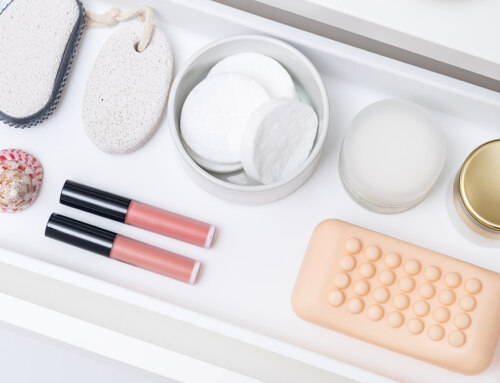








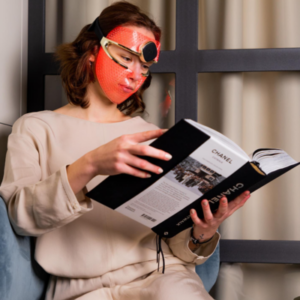
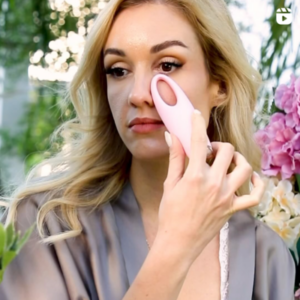

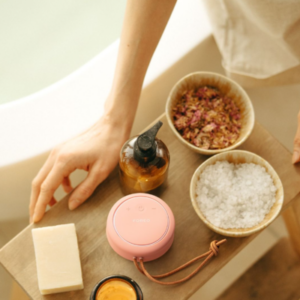
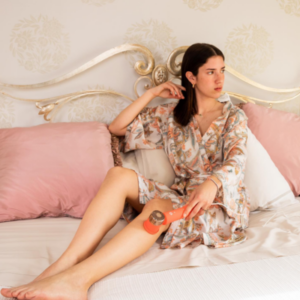
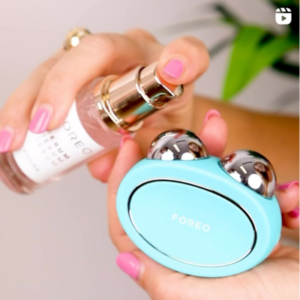
Leave A Comment